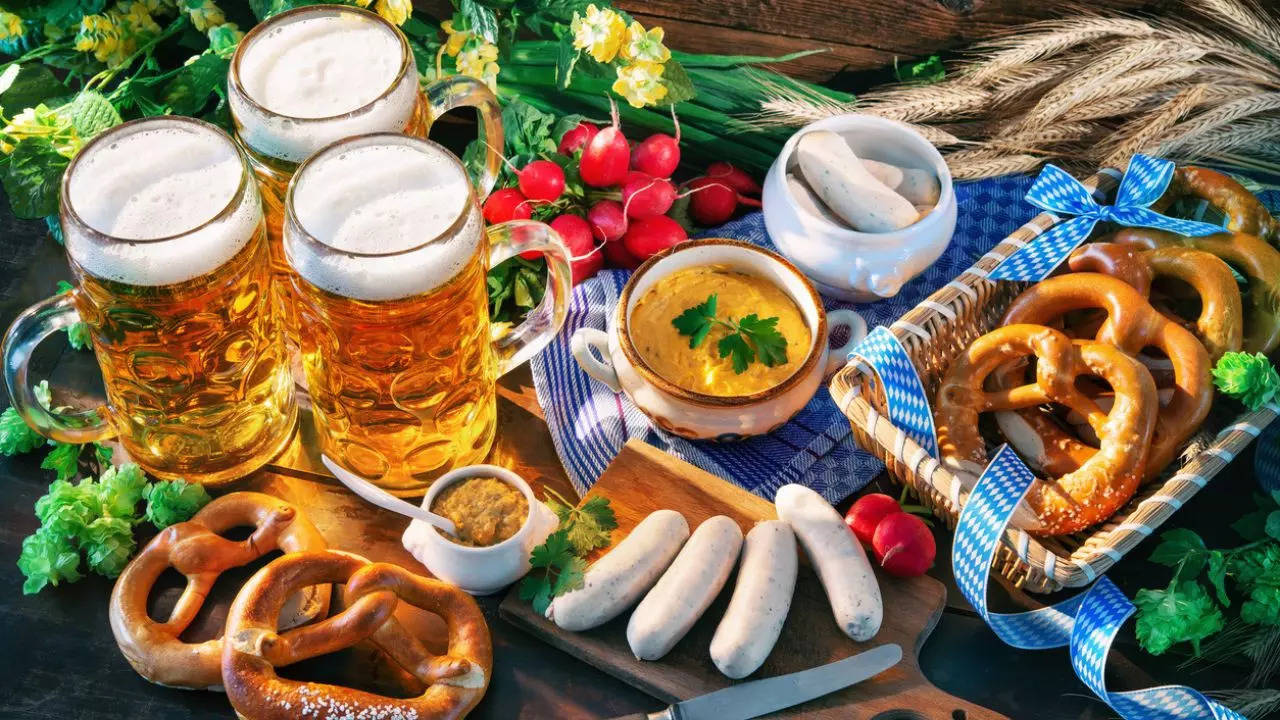Table of Contents

If you’ve ever enjoyed a frosty mug of beer on a hot afternoon, you probably already understand why beer is one of the most widely consumed alcohols the world over. The grain-based beverage has been around for centuries and was even the go-to drink of Egyptians building the pyramids, and today it has its own fanbase the world over who indulge in its delights. One event though has become the centre of a beer-lovers calendar and that’s the German festival of Oktoberfest. In 2024, Oktoberfest begins on Saturday September 21st and ends on Sunday October 6th, 2024, marking a fortnight of revelry and celebration where beer is at the centre of everything.
History Of Oktoberfest
2024 marks the 189th Oktoberfest and since it began almost two centuries ago it has transformed from a small community event in Munich to a worldwide phenomenon. But the very first Oktoberfest actually had nothing to do with beer. In 1810, the Prince Regent Ludwig of Bavaria, (soon to be King Ludwig I) and Princess Therese of Saxony-Hildburghausen were engaged to be married and a member of the Bavarian National Guard had a bright idea to celebrate with a grand horse race to mark the occasion. King Max I Joseph of Bavaria was taken with the idea and the race took place on the 17th of October with grand fanfare and a spirit of community and festivity.
From Horse Race To Agricultural Fair
The following year, there was no wedding on the cards but the city was eager for another celebration of that scale to look forward too and so the Bavarian Agricultural Association (Landwirtschaftlicher Verein in Bayern) took on the job of creating a new event where the people could celebrate while simultaneously highlighting the local agriculture. The fair quickly became one of the most anticipated events of the year and drew people from all walks of life and neighbouring cities to participate.
The New Era Of Oktoberfest
Every year the people of Bavaria would mark the occasion only skipping the festival in times of war or outbreaks of disease, but it wasn’t until 1881 that the fair started to take on the elements that we associate with Oktoberfest today. That year, a roast chicken booth was set up alongside the other entertainment and was an immediate hit. Towards the end of the 19th century, the introduction of electricity meant the festival began festooned in lights, and drew performers, rides and larger crowds.
Also Read: Brew Your Own Beer At Home Like A Pro With These 8 Tips And Tricks
It was around this time that breweries joined in the fun setting up beer tents to entertain and throngs of people and by 1910 – the 100th celebration – 12,000 hectoliters of beer were poured at the Pschorr-Bräurosl, the huge festival tent that seated 12,000 people at the time. It was in 1950 that the Mayor of Munich Thomas Wimmer, introduced the now famous tradition of the keg tap in the Schottenhamel tent and the famous saying ‘O'zapft is’ meaning "It's tapped!" became the customary way to kick off Oktoberfest.
The Beers Of Oktoberfest
Beer is now one of the main draws for Oktoberfest revellers but it’s not just any beer that can be served here. As per tradition, only beer from Munich-based breweries is permitted at Oktoberfest. In the weeks leading up to the event, these breweries unveil their freshly brewed Oktoberfest beer, heightening excitement for the year’s biggest celebration. We present the six breweries from Munich that are authorised to serve beer at Oktoberfest: Augustiner, Hacker-Pschorr, Hofbräu, Löwenbräu, Paulaner, and Spaten.
Each year the breweries introduce a selection of fresh brews but Marzen and Festbier are the two broad categories enjoyed at Oktoberfest. Marzen is a traditional, amber-coloured lager with a medium body, known for its rich malty flavour and crisp bitterness. Originally brewed in March, this beer was left to mature over the summer, making it the perfect choice for Oktoberfest due to its well-rounded, robust profile. On the other hand, Festbier, a more modern Oktoberfest favourite, is a lighter, golden-coloured lager with a distinct hop character and a subtler malt presence. Its refreshing and smoother taste has made it increasingly popular at the festival in recent years. Together, these two styles represent the evolution of Oktoberfest beer, from the traditional Marzen to the lighter, more hop-forward Festbier.
Today, people travel from around the world to Munich to join in the celebration and witness the first keg tap of Oktoberfest and breweries globally celebrate the two weeks with their own menus and creations. What started off as a simple wedding party has snowballed into one of the most culturally significant events for Germany and the world and a period loved by beer fans of all nationalities.

